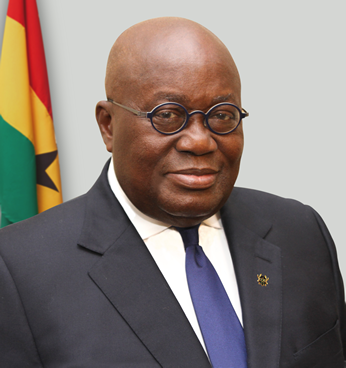The Ghanaian parliament has ratified the framework agreement which seeks to establish the International Solar Alliance (ISA) as a treaty-based organization. The International Solar Alliance (ISA) is a voluntary inter-governmental organization seeking to promote solar energy use across the world. Ghana in May signed the framework agreement to join the IISA on the side-lines of the Annual General Meeting of the African Development Bank (ADB).
The ratification of this agreement, the Ghanaian government said, will provide clean and cheaper energy, cut down on greenhouse gas emissions and accelerate the country’s quest to increase the presence of renewable energy mix in the country.
One of the benefits of the agreed Framework agreement has been described by one of the founding members of ISA an “access to a $10 billion renewable energy credit facility from India”.
“I will want to congratulate the Ministry of Energy for bringing this project to the house, we will want to appreciate the efforts of the current minister in seeing to the fruition of this dream that began in 2015, when projects started by one regime are continued by the other regime, it goes to enhance our democracy and goes to enhance our position as a people,” said former Minister for Power Kwabene Donkor.
The Minister for Parliamentary Affairs, Osei Kyei-Mensah Bonsu, urged the ministry and stakeholders to make the necessary arrangements that will allow the country to thrive from the package that comes alongside this agreement.
Popular content
The Ghanaian government resumed in March plans to promote large-scale solar and wind projects, as well as distributed generation, in order to solve a crisis in Ghana’s power system.
In his State of the Nation Address held at the time, Ghana’s president Nana Addo Dankwa Akufo-Addo said his government will support private sector investment in utility scale solar and wind energy projects, as well as accelerate the development of mini-grid solutions in off-grid and island communities.
Akufo-Addo also said that he intends to enforce a procurement law, which will create a new mechanism for open and competitive bidding for power capacity procurement.
This content is protected by copyright and may not be reused. If you want to cooperate with us and would like to reuse some of our content, please contact: editors@pv-magazine.com.


By submitting this form you agree to pv magazine using your data for the purposes of publishing your comment.
Your personal data will only be disclosed or otherwise transmitted to third parties for the purposes of spam filtering or if this is necessary for technical maintenance of the website. Any other transfer to third parties will not take place unless this is justified on the basis of applicable data protection regulations or if pv magazine is legally obliged to do so.
You may revoke this consent at any time with effect for the future, in which case your personal data will be deleted immediately. Otherwise, your data will be deleted if pv magazine has processed your request or the purpose of data storage is fulfilled.
Further information on data privacy can be found in our Data Protection Policy.